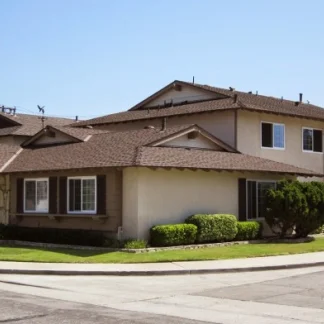Hotel California by the Sea
Hotel California by the Sea - 17th Street is dedicated to provide outpatient ser...
Located in Huntington Beach, California, Five Points Men’s Sober Living is a sober living home where men can live while they engage in alcohol and drug rehab services. This program offers personalized treatment plans that focus on helping men through gender-specific care.
Five Points Men’s Sober Living is a safe space for men to heal. The sober living home provides a structured environment where men can continue outpatient addiction treatment services prior to moving back to their home. Clients must follow house rules, engage in house meetings, maintain an abstinent lifestyle, and engage in their recovery program.
Five Points Men’s Sober Living accepts most insurance plans, including Amerigroup, Anthem, Blue Cross Blue Shield, Magellan, Aetna, Beacon, TRICARE, Cigna, ComPsych, United Healthcare, Wellmark, and Kaiser. Out of network benefits may vary, so individuals are encouraged to contact their insurance carrier prior to starting treatment of any kind.
Contact us for more information: (714) 313-8302

Connect with Five Points Men's Sober Living by calling their admissions team directly.
(714) 313-8302 Website Get DirectionsThe Joint Commission, formerly known as JCAHO, is a nonprofit organization that accredits rehab organizations and programs. Founded in 1951, the Joint Commision's mission is to improve the quality of patient care and demonstrating the quality of patient care.
Joint Commission Accreditation: Yes Accreditation Number: 611046
Group therapy is any therapeutic work that happens in a group (not one-on-one). There are a number of different group therapy modalities, including support groups, experiential therapy, psycho-education, and more. Group therapy involves treatment as well as processing interaction between group members.
Recreational therapy (aka therapeutic recreation) uses creative and fun activities to help with addiction recovery. Recreational therapists lead patients in entertaining and engaging activities like sports or games; art (drawing, painting, sculpture); drama, music, and dance; and/or community outings (field trips) to improve patients' physical, social, and emotional well-being.
Recreational therapy (aka therapeutic recreation) uses creative and fun activities to help with addiction recovery. Recreational therapists lead patients in entertaining and engaging activities like sports or games; art (drawing, painting, sculpture); drama, music, and dance; and/or community outings (field trips) to improve patients' physical, social, and emotional well-being.
Hotel California by the Sea - 17th Street is dedicated to provide outpatient ser...
Yellowstone Recovery is a nonprofit drug and alcohol addiction recovery center i...
Clean Path Behavioral Health is a private substance abuse center in Costa Mesa, ...
Northbound Treatment Services offers residential detox and an observation home l...